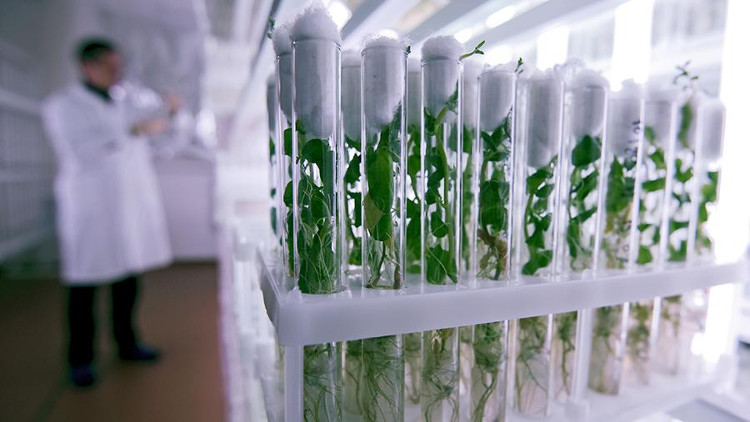Antioxidants slow down the aging process in plants
Russian scientists have demonstrated that SkQ antioxidants work to inhibit the aging process of these and can be used in biotechnology and agriculture .
According to research results published in Mitochondrion magazine, scientists at the Moscow National University of Biology, Russia, tested on plants called SkQ . Experiments show that the plant's cells slow down.

SkQ antioxidants slow down the aging of plant cells - (Photo: RIA novosti).
Aging is a complex process, including a multitude of mechanisms that work at different levels. One of the main mechanisms of aging is the formation of oxidative free radicals (Reactive Oxygen-Reactive Oxygen-Ries). These molecules have high chemical activity, oxidize many compounds inside the cells, resulting in malfunctions in the molecular mechanisms of the cell and eventually cause cell death.
Most activated oxygen forms are usually formed in the mitochondria - the cell's energy stations. Antioxidants directly target the mitochondria, including SkQ ions, which act directly on mitochondria and prevent the synthesis of dangerous molecules. Russian scientists tested SkQ antioxidants on plant cells. The main objective of the study is to find the effect of these substances on chloroplasts (organelles) where photosynthesis takes place.
The authors of the study found that with nanomolar concentrations, SkQ ions prevent the death of bean leaf epidermis caused by strong toxins. At concentrations greater than a thousand times, these antioxidants inhibit photosynthesis in chloroplasts and stimulate mitochondrial respiration.
The scientists concluded that antioxidants directed at mitochondria at low concentrations do not affect cell respiration and photosynthesis in chloroplasts. At such doses, the studied antioxidants can be used in biotechnology and agriculture.
- Find out how to slow down the aging process
- Slow down the aging process thanks to venom from venomous snake venom
- Russian drug testing can help people live 120 years
- Interesting finding: The brain uses tips against aging
- Antioxidant tablets may increase the risk of death
- Successful preparation of anti-aging drugs: People will immortalize?
- Warning of antioxidants accelerates cancer metastasis
- Mother's gene affects the aging process of children
- Finding chemical elements can slow down the aging process and increase life expectancy
- American scientists happen to reverse the aging process
- Detects compounds in vegetables and chemotherapy drugs that slow down aging
- Challenging the aging process
 Why do potatoes have eyes?
Why do potatoes have eyes? 'Tragedy' the world's largest carnivorous life: Death becomes ... public toilet
'Tragedy' the world's largest carnivorous life: Death becomes ... public toilet Tomatoes were once considered 'poisonous' for 200 years
Tomatoes were once considered 'poisonous' for 200 years Detecting microscopic parasites on human face
Detecting microscopic parasites on human face